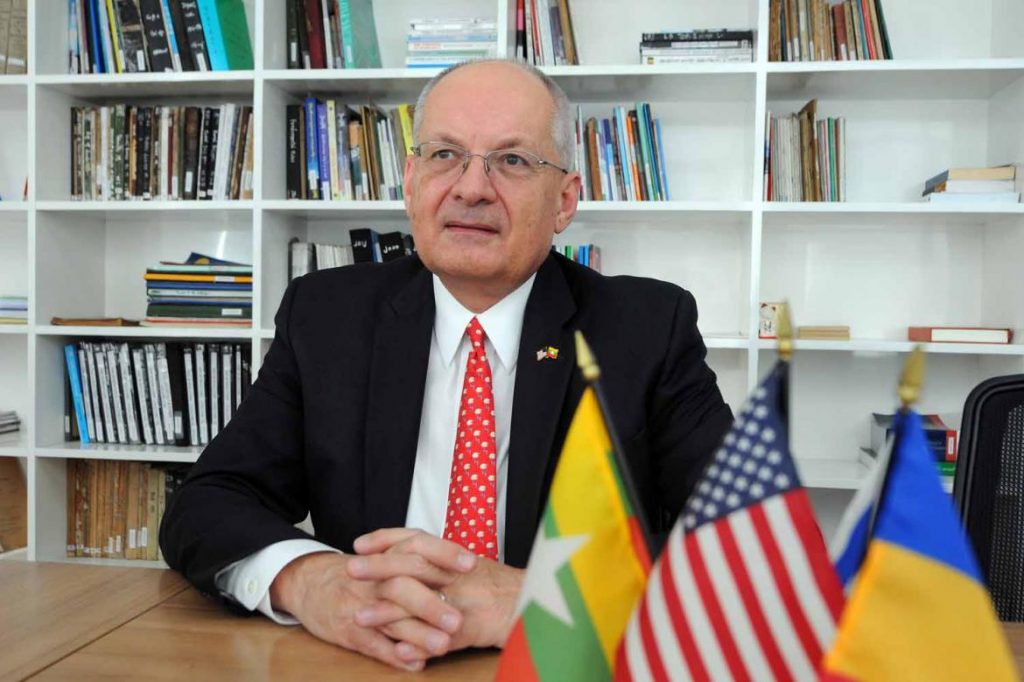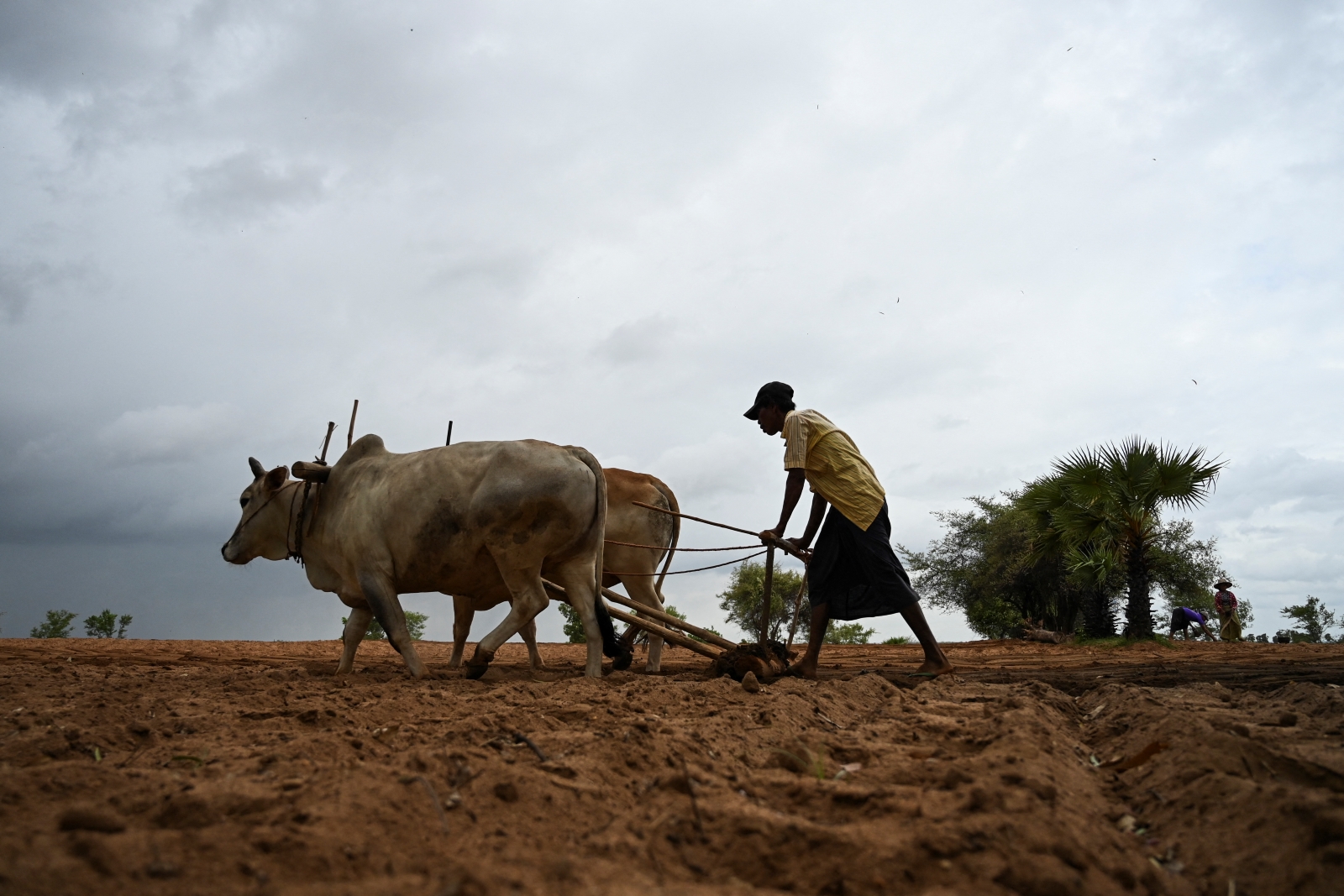When United States President Barack Obama lifted most sanctions on Myanmar in October, many saw it as a breakthrough for the country’s economic future. But Mr Eric Rose – a long-time critic of sanctions – argues that the prohibitions that remain in place are problematic and hard to justify given the dubious democratic credentials of many of Myanmar’s neighbours. The lead director of Herzfeld Rubin Meyer & Rose, the first US law firm established in Myanmar, Rose spoke with Frontier contributor Peter Janssen about sanctions as the US prepares to enter the Donald Trump era.
What sanctions still remain against Myanmar?
By this past May, the Obama administration had exempted all Myanmar banks from US financial sanctions, but what it did not do was to exempt the country from the provisions of sections 311 and 312 of the USA Patriot Act. What those provisions provide for has to do with the laundering of money and terrorist financing, and they impose extraordinary requirements of enhanced due diligence on financial institutions dealing with the country.
On October 7, the US Treasury Department granted Myanmar a further exemption from section 311, but not from section 312, which is the section that imposes the enhanced due diligence requirements on financial institutions. These enhanced requirements apply, with few exceptions, to only a couple of ASEAN countries, including Myanmar.
The result is there are no American banks present in Myanmar, even with a sales representative office; no American banks offer trade financing with Myanmar; no American banks finance investments in Myanmar; and no American banks repatriate profits from Myanmar to the United States.
Can other, non-American banks get around section 312?
The same rules apply to non-American banks that have operations in the US. They all have very serious concerns about the way these rules have been interpreted by the US Treasury Department and the risk is so large that they choose not to be involved in transactions with or in Myanmar.
Why is Myanmar being singled out?
Well, that’s my question: why is Myanmar still so special today – after having held two free elections, [the results of] which were recognised by the military – that the [section] 312 enhanced due diligence requirements are maintained? These rules were imposed with good reason in 2004 … The result [for Myanmar] has been that the banking system here is still in its infancy.
Support more independent journalism like this. Sign up to be a Frontier member.
The local banks don’t have the tools that would enable them to be involved in international banking. The result is they don’t have a SWIFT number. They don’t have the ability to directly transfer money because no one will do business directly with them. You have to do it through a correspondent bank in Singapore or Thailand, which will conduct its own due diligence.
What I’m saying is that, for years, successive American administrations have treated Myanmar banking as a pariah, as opposed to working to gradually improve its systems. Today, the Myanmar banks still have to operate under these remaining US sanctions, even though the rest of the world has pulled back. What’s more important is that the rest of the world, except for the US government, is trying to train and invest in the banking system here in order to lift all boats at the same time, so that Myanmar will be integrated, once again, in the global economy.
If President Obama didn’t lift the section 312 sanction, what are the chances of Donald Trump doing so?
It is really up to Mr Trump, as I do not expect that the Obama administration will take any additional regulatory actions concerning Myanmar. Let me give you an example: a couple of years ago, Mr Trump gave a speech in which he said that the Foreign Corrupt Practices Act is anti-competitive and should be set aside.
Now, I don’t believe that he intends to remove the FCPA, which would be a horrible idea. Having said that, though, let’s look at his actions once he comes into office on January 20, and not to his words. If one is to believe that his administration is going to be pro-business – that it is going to unshackle business in order to enhance global growth, that he will make every effort to create jobs in the US – then I would suggest that Myanmar is a prime example of what should be done.
What other US sanctions remain against Myanmar?
There are a number of legislative acts which are still to be removed, as well as regulatory leftovers from previous laws no longer in effect, like the Jade Act. Under these regulations, for example, a number of Myanmar citizens, some of whom have never been [included on the US Treasury’s Specially Designated Nationals List], are unable to receive US visas. So, you have a number of leading businesses here that may have been affiliated at some point in the past with cronies … [and now] some of these cronies have died, or the SDN lists have been removed. Still, their families are not allowed to come to the US to do any type of business, or even to sightsee or visit relatives.
By the way, we don’t represent any of these people [but] it makes little sense to me to tell people who have not broken any US law, and who may want to invest in or trade with the US, actions which would create jobs in the US, that they cannot even come to the US to engage in transactions.
What are the chances that Mr Trump even knows about Myanmar and might address these issues?
If God keeps me healthy, he and members of his administration will find out at some point in time. All I want, and what AmCham [the American Chamber of Commerce] wants, is for Myanmar to be treated the same way as the surrounding countries. No better, no worse.
What’s the lesson learned from past US foreign policy toward Myanmar?
It’s about having ideology run your foreign policy, rather than a policy which is pro-growth and charged to improve the status of all of Myanmar’s hard-working people, while bringing back the rule of law to a proud country that hasn’t experienced it in over half a century.







